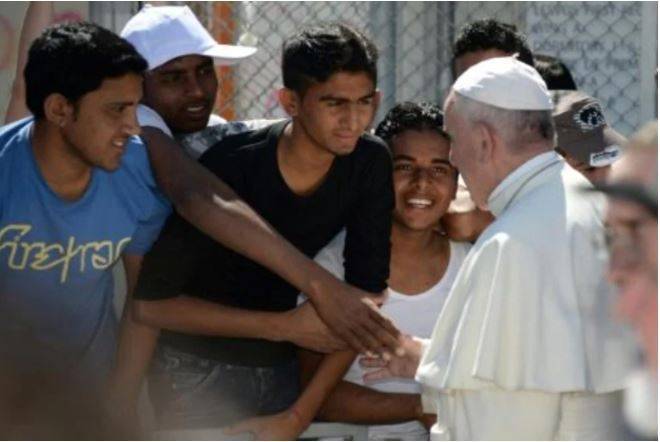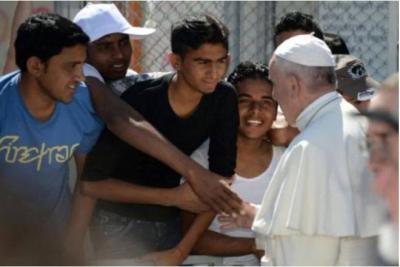Pope Francis will depart from the Vatican on Thursday for a five-day trip to Cyprus and Greece, where he will once again raise the issue of migrants and interfaith dialogue. During the trip, he will visit Lesbos, an island that has become a symbol of the migration crisis. The Argentine pope is expected to arrive in Cyprus on December 2, remaining there until the 4th, before moving on to Greece, where he will stay until the 6th of the same month. Both countries predominantly feature the Orthodox community, home to tens of thousands of Catholics.
With 12 speeches planned and a journey covering 4,500 kilometers by air, along with multiple meetings with political and religious leaders, Pope Francis, who will soon turn 85 and has shown signs of fatigue since undergoing colon surgery in July, does not appear to want to reduce his workload. He continues with his visit despite the ongoing health crisis.
During this thirty-fifth trip since his election in 2013, the Pope will reiterate his annual call for the world to denounce the migration crisis, following tensions between the European Union and Belarus and the tragedy in the English Channel, where 27 people lost their lives. Before a large mass in Athens, he will make a brief round trip to Lesbos on December 5. On this island in the Aegean Sea, less than 15 kilometers from the Turkish coast, he stated during his first visit in April 2016, "We are all migrants!"
A "Strong Message"
The Archbishop of Catholic Aegean, Joseph Peristeris, announced to AFP that the Holy Father wants to deliver a "humanitarian declaration rather than a political one." He wishes to raise awareness among European citizens about the refugee issue, as the Mediterranean is filled with the drowned. For his part, Roberto Zuccolini, spokesperson for the Italian Catholic community Sant'Egidio, which has organized humanitarian corridors particularly from Greece since 2015, emphasized that the fact he is returning to the same place after five years is a very strong message. In the face of "an accumulation" of crises, "the Pope wants to remind Europe in a powerful way that it bears a shared responsibility."
Greek authorities, on their part, express their expectations that the Pope will acknowledge "the burden shouldered by the population for years," but they do not wish to reduce the visit to a single dimension—migration—as the trip to Athens will primarily focus on dialogue with the Orthodox Church, which has been separate from the Catholic Church since the schism in 1054 between Rome and Constantinople.
Marco Politi, a journalist specialized in Vatican affairs, stated to AFP that "the Pope wants to strengthen ties with the Orthodox community, to which he has shown brotherly gestures, and he has asked Patriarch Bartholomew of Constantinople to bless him."
Nicosia... A Divided Capital
Before heading to Greece, Pope Francis is expected to arrive in Cyprus on Thursday, where he will issue a "call for unity and peace," according to a source in the Vatican. The island of Cyprus has been divided since 1974 between the Republic of Cyprus, a member of the European Union, and the "Turkish Republic of Northern Cyprus," declared unilaterally in 1983 and recognized only by Ankara. Negotiations to resolve the Cyprus crisis have been stalled since 2017, despite repeated talks under UN supervision to achieve the island's reunification.
In the capital Nicosia, divided by a "Green Line," the Pope will meet with President Nicos Anastasiades and Archbishop Chrysostomos II, the head of the local Orthodox Church. On Friday, he will celebrate a mass in a municipal football stadium before seven thousand worshippers and will hold an ecumenical prayer with migrants near the U.N.-administered buffer zone. According to Cypriot authorities, discussions are underway with the Vatican to arrange the transfer of refugee families to Italy, similar to what took place in 2016 during his visit to Lesbos.
After Iraq and Slovakia, this will be Pope Francis's third trip in 2021, following a year hindered by the COVID-19 pandemic. He acknowledged in March upon returning from Iraq that he felt "much more tired" from this trip than from previous ones; however, he announced his intention to continue traveling in 2022, especially to Oceania.




